This summer was filled with disappointment, hope, and progress.
In June, the Supreme Court struck down affirmative action in college admissions, ignoring nearly 50 years of precedent to follow the right-wing myth of “race-blind” meritocracy. We’re frustrated with the decision, but we’re not giving up. Following the news, we saw an uproar of solidarity and support to double down on efforts to advance racial equity in higher education. And to defend race conscious programs in employment, media representation, and society more broadly.
It’s moments like these that remind us of the power in our communities, and the need to celebrate victories as well. CAA played a major role in defeating a property ban proposal targeting Chinese immigrants in Texas, rallied local groups in San Francisco to introduce new measures to strengthen language access, won a critical court decision to protect immigrant voting rights, and helped increase an already historic investment in California’s AAPI communities.
It has been an eventful summer, and we invite you to read on to celebrate the highs and struggle through the lows with us:
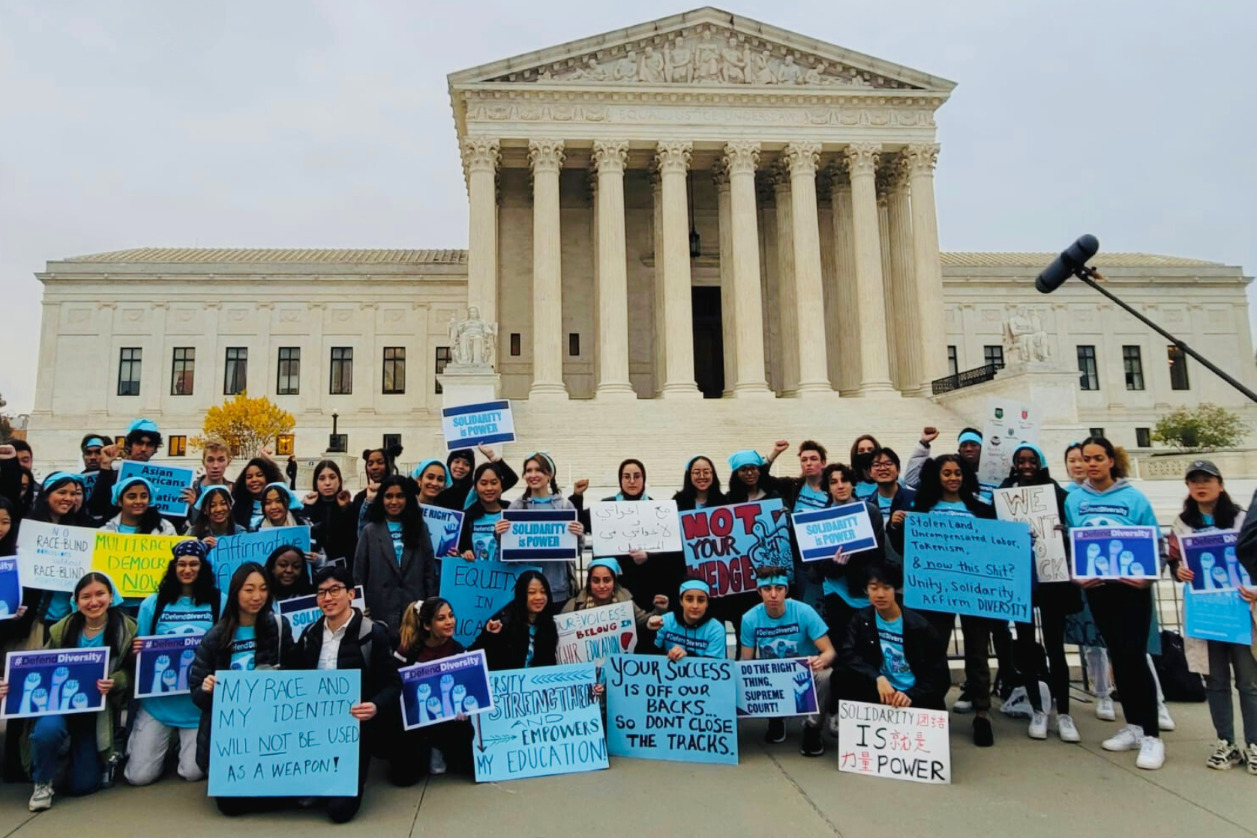
SCOTUS Strikes Down Affirmative Action in College Admissions
On June 29, the Supreme Court ruled against race-conscious admissions in SFFA v. Harvard and SFFA v. UNC. This decision succumbs to years of anti-civil rights advocacy from supposed “race blind” litigators such as Ed Blum, and spells devastating consequences for Black, Latinx, Indigenous, Asian American, and Pacific Islander students for generations to come.
But it’s not over yet. We’ve been rallying community members to put pressure on colleges and universities to double down on equitable admissions practices, and challenging misinformation about affirmative action through our myth vs. fact social media series. CAA’s Education Equity Policy Manager Sally Chen and Co-Executive Director Vincent Pan have also been pushing the narrative by sharing our story to local and national media, including the San Francisco Chronicle, NBC, Washington Post, and TIME, and speaking to scores of conference and community groups. We’re here to let people know that the fight for diversity and equity in education is not over, and that Asian Americans have and will continue to stand for racial justice in our colleges and universities!
Discriminatory Land Bans: Victory in Texas, Litigation in Florida Continues
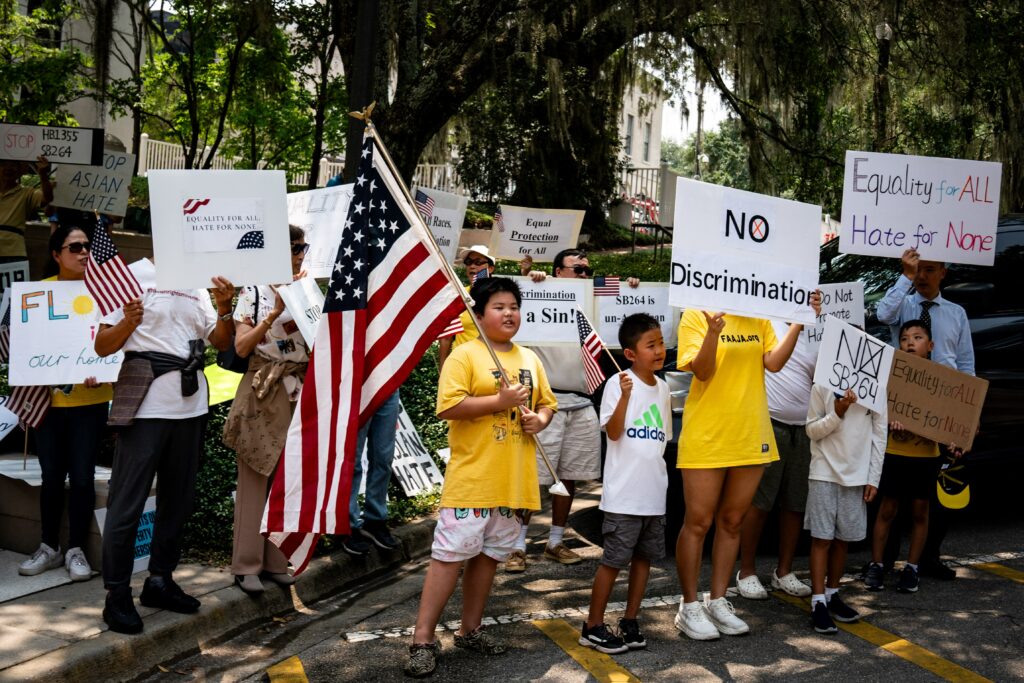
Texas’ SB 147, a bill initially introduced to prevent certain immigrants from buying property, died in the state legislature after local allies with whom CAA partnered mobilized against the xenophobic legislation. Texas is not alone. More than 20 states have introduced legislation banning Chinese and other immigrants from buying property or owning a home. In Florida, Ron DeSantis signed into law SB 264, a racist bill that criminalizes Chinese immigrants and other ethnic groups from owning land based solely on their national origin. ACLU of Florida and AALDEF filed a lawsuit against Florida to stop the State from implementing SB 264, and CAA signed on to an amicus brief to stop SB 264. CAA also joined local allies on the front steps of Federal District Court in Tallahassee as the Court heard oral arguments from both sides. CAA will continue to monitor and support the litigation in Florida, and will be growing its efforts to address this growing national civil rights crisis.
Second Convening of AAPI Against Gun Violence Coalition
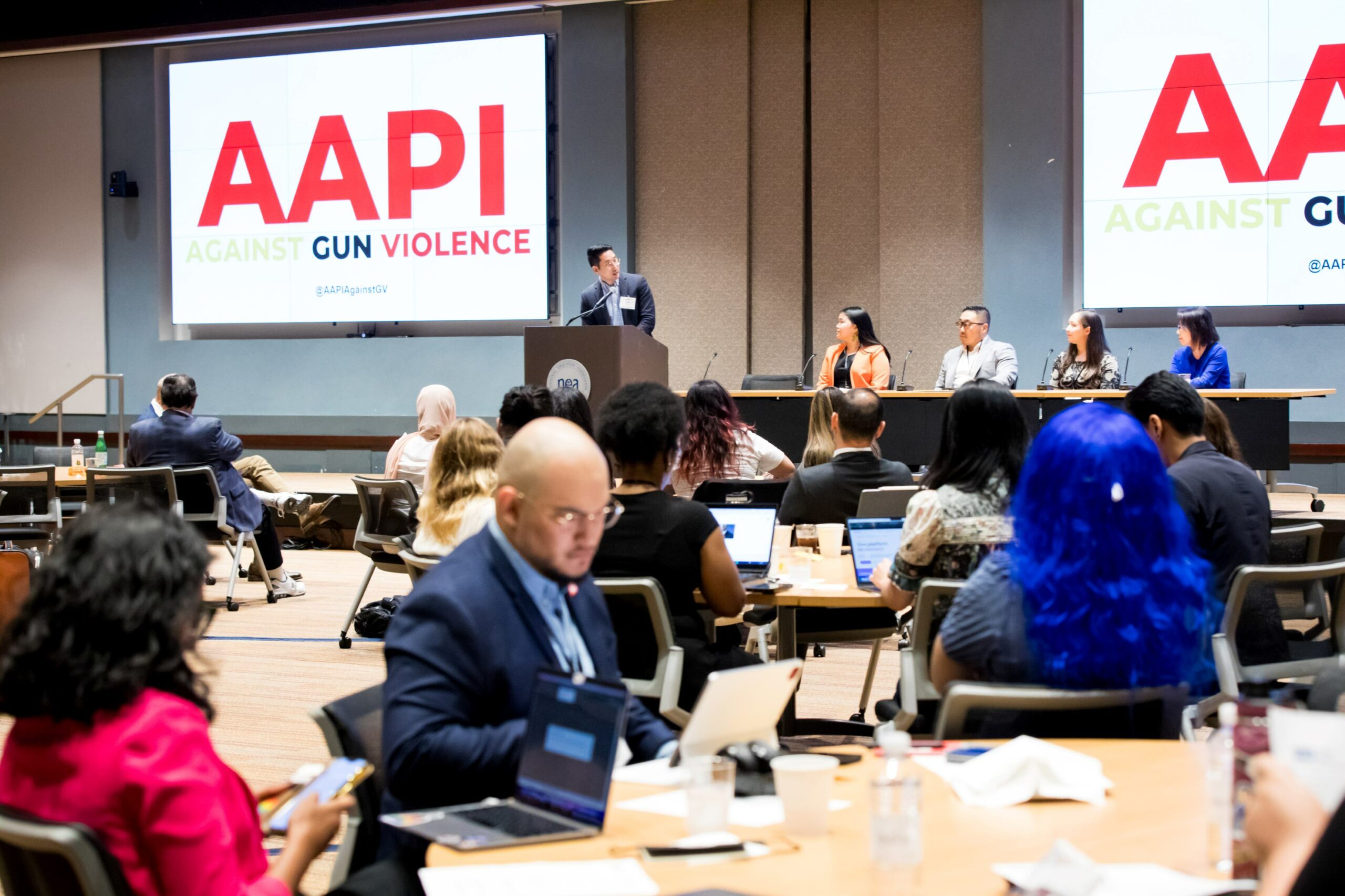
CAA, along with the AAPI Against Gun Violence Coalition, co-hosted a second annual convening in Washington, D.C. to bring together AAPI and gun violence prevention movement leaders. The convening highlighted how important this issue is for the AAPI community and how the gun industry is intentionally exploiting fears to market guns to AAPIs as a response to the rise of anti-Asian hate. Last year, Congress passed the Bipartisan Safer Communities Act, the first major federal legislation to address gun safety in three decades, but much more remains to be done to engage and protect our communities from the scourge of gun violence.
Victory! Immigrant Parent Voting is Restored in San Francisco
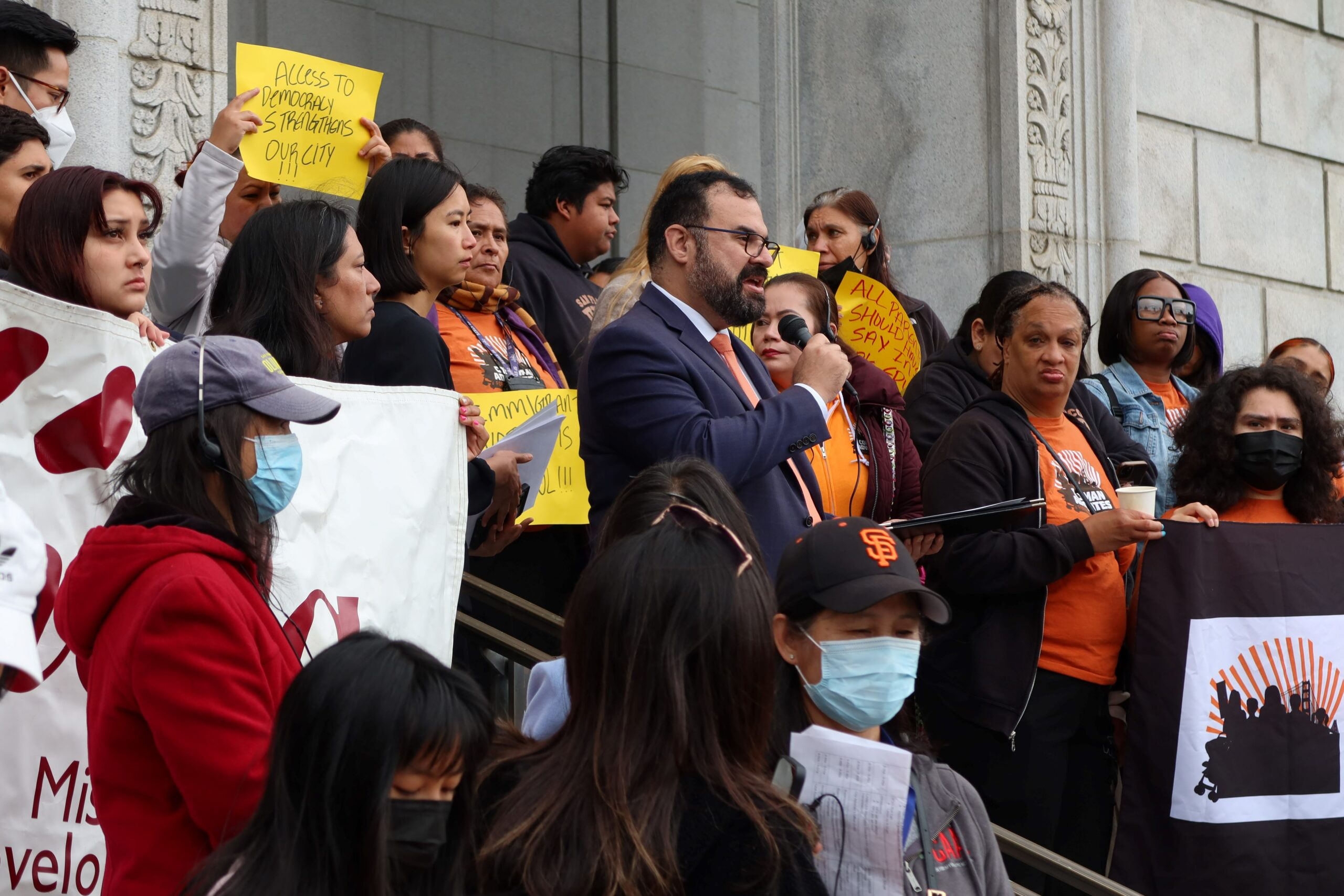
Immigrant parent voting in San Francisco public schools functions as an important pillar of CAA’s strategy to advance multiracial democracy by expanding pathways for civic engagement. Though conservative activist James Lacy tried to end these immigrant rights by suing the City, on August 8, the California Court of Appeals ruled that immigrant parent voting in school board elections is lawful according to the state constitution.
CAA, along with our partners and allies in the Immigrant Parent Voting Collaborative, were proud to rally in front of the courthouse and to fill the room with immigrant parents and immigrant rights advocates as the judges heard arguments.
The August ruling is an enormous victory for our immigrant communities, who have long suffered from xenophobic sentiment and disenfranchisement in this country.
Summer in San Francisco
Strengthening Language Access in San Francisco
In partnership with San Francisco Supervisors Shamann Walton and Connie Chan, CAA and the Language Access Network, led efforts to advance amendments to San Francisco’s Language Access Ordinance. These amendments will ensure greater transparency and accountability so that the City delivers quality services to communities that speak a language other than English.
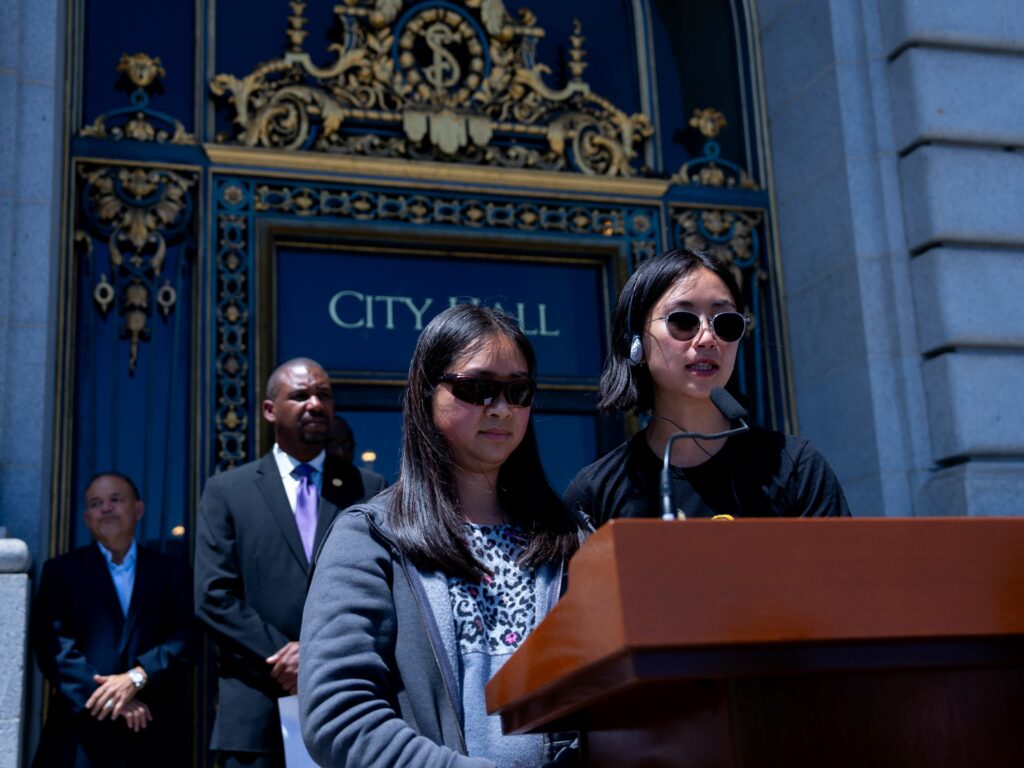
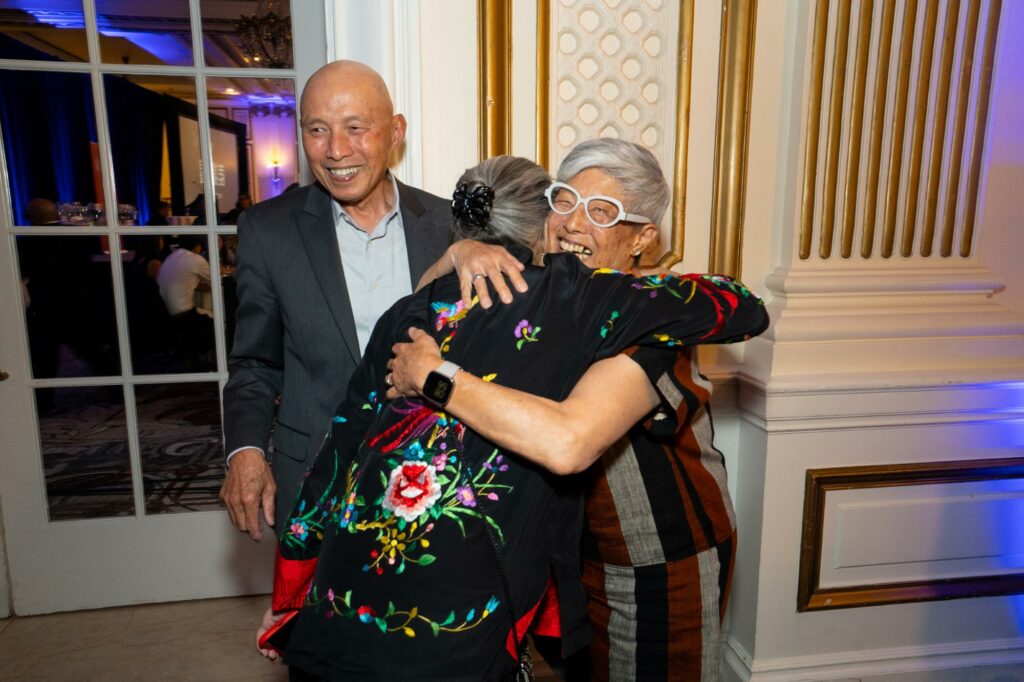
CAA’s 54th Celebration of Justice
We started the summer with a joyous occasion: our 54th annual Celebration of Justice dinner. In our first fully in-person event since the pandemic, CAA gathered more than 360 guests at the Palace Hotel for a night of music, art, and community. Thanks to all of your efforts, we exceeded our fundraising goal while honoring the African Advocacy Network, Sarah Wan of Community Youth Center of San Francisco, and Unbound Philanthropy. We’ll see you at COJ55!
CAA Secures an Additional $40M for the API Equity Budget
CAA played a pivotal role in advocating for an additional $40 million for the API Equity Budget earlier this summer. This successful effort, championed by Asm. Phil Ting, the AAPI Legislative Caucus, and a coalition of 118 partner organizations, led to Governor Gavin Newsom and California’s legislative leaders allocating significant new funding for the API Equity Budget on top of the initial $166.5 million that CAA helped secure in 2021. This historic investment will enhance victim services and violence prevention and underscores the state’s commitment to addressing anti-AAPI hate and advancing equity. As CAA’s Executive Director Cynthia Choi noted in her joint op-ed in the San Francisco Chronicle, “Hate cannot be eradicated overnight, and combating it takes consistent effort and investment.”
CAA In The News and Media
CAA and the Immigrant Parent Voting Collaborative mobilize in front of the California First District Court of Appeals as Lacy v. San Francisco is heard on appeal on the issue of whether immigrant voting is valid under the California state constitution.
“Affirmative action is still alive and well in the private sector. It’s still alive and well in many of the things that affect our daily lives,” says CAA’s Vincent Pan for the Fifth and Mission Podcast.
CAA’s Cynthia Choi comments in the San Francisco Chronicle on the importance of “institutional accountability” and how California must improve its infrastructure when addressing individuals with mental health needs.
Separately, Cynthia shares in the Sacramento Bee on how the model minority myth has led to under-investment in our AAPI communities by government, philanthropy, and private sector, and why that must change.
“We saw that we were being used as a face for this case. Many people realized that to be silent was to endorse Ed Blums’s ability to speak for us, and if we didn’t want that, then we needed to get involved,” says CAA’s Sally Chen for the Rolling Stone.
CAA’s Nick Gee tells NBC News that Florida’s SB 264 is a stark reminder of the discriminatory practices of the past that we fought so hard to overcome.



